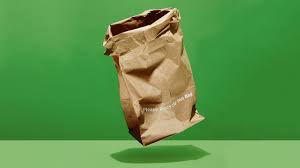The Rise of Sustainable Products: A Greener Future
In recent years, there has been a noticeable shift towards sustainable products as consumers become more environmentally conscious. From reusable water bottles to eco-friendly clothing, the market for sustainable goods is rapidly expanding.
One of the key drivers behind this trend is the growing awareness of the impact that traditional manufacturing processes have on the environment. By opting for sustainable products, consumers can reduce their carbon footprint and help preserve our planet for future generations.
Benefits of Sustainable Products
Sustainable products offer a range of benefits, both for the environment and for consumers themselves. For example, many sustainable products are made from recycled materials, reducing the need for new resources and minimising waste.
Furthermore, sustainable products are often built to last, meaning they are more durable and can be used for longer periods of time. This not only reduces the frequency of replacements but also saves consumers money in the long run.
The Future of Sustainable Products
As consumer demand for sustainable products continues to grow, we can expect to see even more innovative solutions emerge in the market. Companies are increasingly investing in research and development to create products that are not only eco-friendly but also stylish and functional.
Ultimately, the rise of sustainable products signals a positive shift towards a greener future. By choosing sustainable options, consumers can play a vital role in promoting environmental sustainability and driving positive change on a global scale.
Understanding Sustainable Products: Definitions, Principles, and Examples
- What is meant by sustainable production?
- What are the sustainable 3 things?
- What is sustainable vs eco-friendly products?
- What are eco friendly products?
- What is a truly sustainable product?
- What is an example of a sustainable product?
- What is meant by sustainable products?
What is meant by sustainable production?
Sustainable production refers to manufacturing processes that aim to minimise negative environmental impacts, conserve resources, and promote social responsibility throughout the entire product lifecycle. It involves implementing practices that reduce waste, energy consumption, and pollution while also considering the well-being of workers and communities involved in the production process. Sustainable production strives to strike a balance between meeting current needs without compromising the ability of future generations to meet their own needs, ensuring long-term environmental and social sustainability.
What are the sustainable 3 things?
When it comes to sustainable products, three key aspects are often highlighted as essential for promoting environmental responsibility: reducing waste, conserving resources, and supporting ethical practices. By focusing on these sustainable principles, individuals and businesses can make a significant impact in creating a more eco-friendly and socially conscious world. Embracing practices that minimise waste generation, utilise resources efficiently, and uphold ethical standards in production processes are crucial steps towards building a sustainable future for generations to come.
What is sustainable vs eco-friendly products?
When considering sustainable vs eco-friendly products, it’s important to understand the distinction between the two terms. Sustainable products are those that are designed to have a minimal impact on the environment throughout their entire lifecycle, from production to disposal. These products aim to conserve resources, reduce waste, and promote social responsibility. On the other hand, eco-friendly products focus specifically on being environmentally friendly or non-harmful to the ecosystem. While both sustainable and eco-friendly products share a common goal of protecting the planet, sustainable products take a broader approach by considering long-term sustainability and ethical practices in addition to environmental impact.
What are eco friendly products?
Eco-friendly products, also known as sustainable products, are items that are designed and manufactured with a focus on reducing their environmental impact. These products are typically made from renewable or recycled materials, produced using environmentally friendly processes, and aim to minimise waste throughout their lifecycle. Eco-friendly products are often biodegradable or recyclable, helping to reduce the amount of waste that ends up in landfills. By choosing eco-friendly products, consumers can make a positive contribution towards protecting the environment and promoting sustainability for future generations.
What is a truly sustainable product?
A truly sustainable product is one that considers the entire lifecycle of its production, from sourcing raw materials to manufacturing, distribution, and disposal. It is designed with environmental and social considerations in mind, aiming to minimise negative impacts on the planet and people. A sustainable product is not only eco-friendly in its materials and processes but also ethically produced, promoting fair labour practices and supporting local communities. Additionally, a truly sustainable product is durable, repairable, and recyclable, encouraging a circular economy where resources are reused rather than discarded. Ultimately, a sustainable product embodies a holistic approach to sustainability that prioritises long-term benefits for both the environment and society.
What is an example of a sustainable product?
An example of a sustainable product is a bamboo toothbrush. Bamboo is a fast-growing, renewable resource that requires minimal water and no pesticides to grow. By using a bamboo toothbrush instead of a plastic one, you can reduce plastic waste that ends up in landfills and oceans. Bamboo toothbrushes are biodegradable, meaning they can break down naturally without harming the environment. Switching to sustainable alternatives like bamboo toothbrushes is a simple yet impactful way to lessen your ecological footprint and contribute to a more sustainable future for our planet.
What is meant by sustainable products?
Sustainable products refer to goods that are produced, used, and disposed of in a way that minimises their impact on the environment and society. These products are designed to meet present needs without compromising the ability of future generations to meet their own needs. Sustainability encompasses various aspects, including the use of renewable resources, reducing waste and pollution, ethical sourcing and production practices, and promoting social responsibility throughout the product’s lifecycle. In essence, sustainable products aim to strike a balance between economic viability, environmental stewardship, and social equity to create a more sustainable and harmonious future for all.

